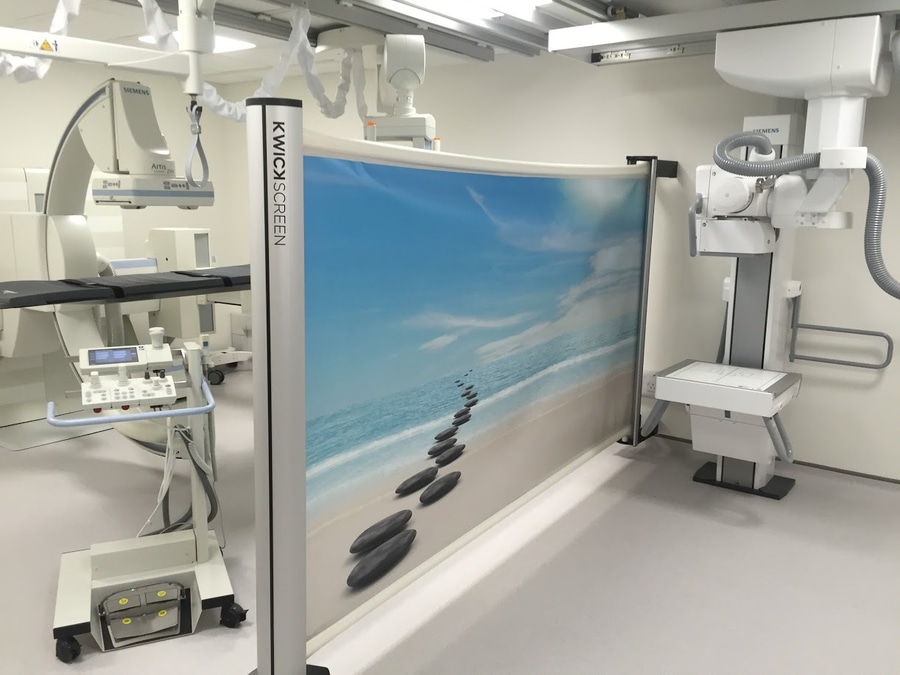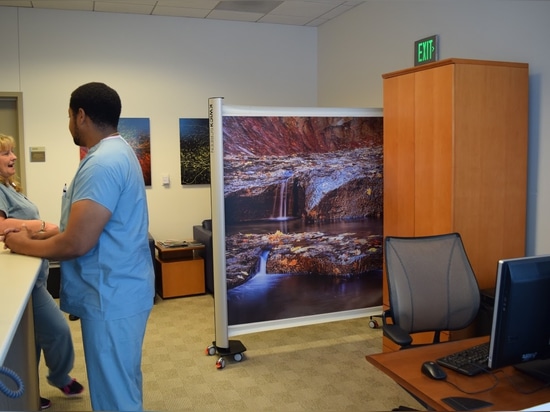
#Product Trends
Infection Control Case Study
Infection Control
Application: Infection isolation on general wards
Client: Homerton University Hospital
Infection Control Department
Product: 10 x Portable KwickScreens
Feedback: “The clear design we have used
ensures that patients can be observed and
they do not feel isolated from other people.”
- Vickie Longstaff, Infection Control Lead,
Homerton University Hospital
THE PROBLEM
There is a lack of side rooms in many hospitals across
the NHS. The majority of infected patients do not need to
be placed in side rooms, requiring only a physical barrier
between bed-spaces to prevent infection transmission
through droplets, and improve hand hygiene compliance.
Many patients do not wish to be placed in side rooms, or
require constant observation.
Often during outbreaks there are insufficient side rooms
available for all patients carrying infections including MRSA
and Norovirus. Many expensive or inappropriate methods
are used to manage infected patients including bed blocking,
barrier nursing or delaying discharge from previous (often
more costly) wards until appropriate side-rooms are
available.
HOW IT WORKS
KwickScreens have now been adopted by infection
control teams across the NHS to provide isolation for
infected patients within wards. The KwickScreen provides
both a physical barrier around the infected patient and
a psychological trigger that has been proven to improve
hand hygiene compliance. It also allows patients to
remain visible to each other and to staff, offering a
significant advantage over side rooms.
- Allows separation of infected areas within a ward
- Isolates non-airborne infections in the ward
- Provides visibility & isolation
- Improves hand hygiene compliance and prevents crossbed
traffic
- Low levels of patient stigmatisation
- Hygiene units for alcohol gel, gloves and gowns
available
- Easy to clean, small storage footprint when not in use
“The clear design we have used ensures that patients can be observed and
they do not feel isolated from other people”
- Vickie Longstaff, Infection Control Lead, Homerton University Hospital













